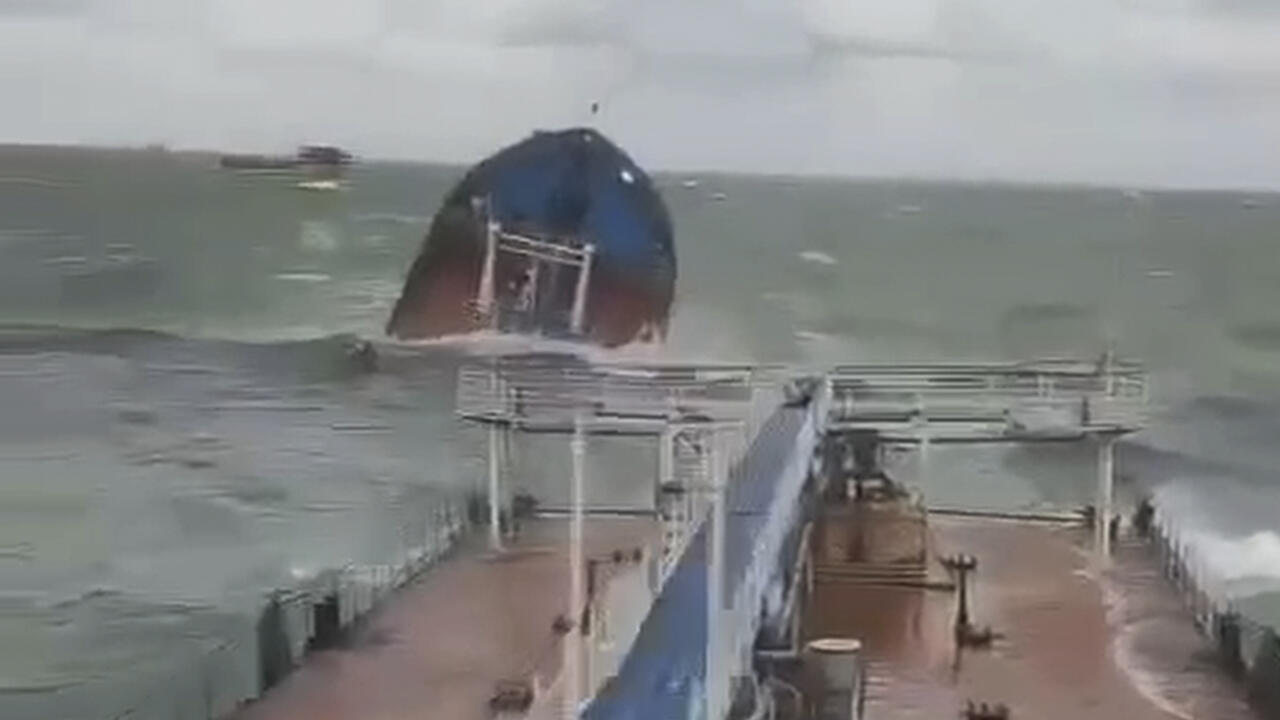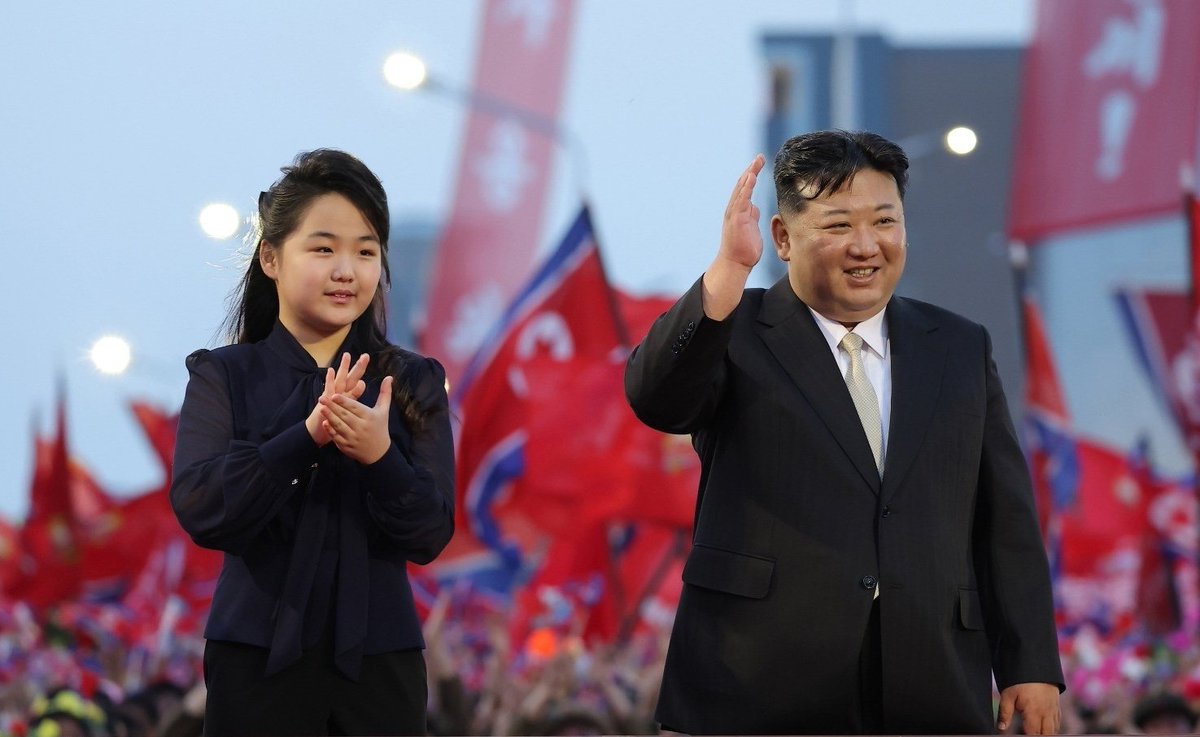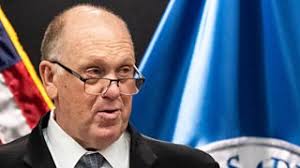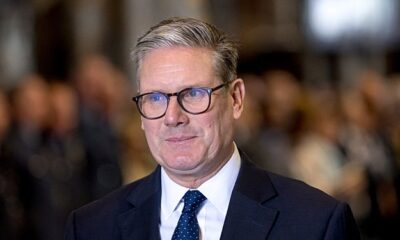News
“Russian Tanker Wrecks in Black Sea

Two Russian oil tankers, Volgoneft-212 and Volgoneft-239, have been heavily damaged during a severe storm in the Black Sea, resulting in a significant oil spill and the loss of at least one crew member, according to Russian authorities. The vessels were carrying 27 crew members combined when the accidents occurred near the Kerch Strait, a strategic waterway separating Russia and Crimea.
Footage released by the Southern Transport Prosecutor’s Office depicted one tanker splitting in two and sinking, with oil streaks visible on the water’s surface. The second tanker, severely damaged, reportedly drifted before conflicting reports suggested it may have run aground. Both incidents underline the environmental and maritime challenges posed by the stormy conditions in the region.
Russian President Vladimir Putin has directed Deputy Prime Minister Vitaly Savelyev to lead a working group tasked with managing the aftermath of the disaster. Authorities are also investigating the incident for potential criminal negligence, aiming to determine if human error or regulatory breaches contributed to the tankers’ fates.
A large-scale rescue and cleanup operation is currently in progress, involving tugboats, helicopters, and over 50 personnel. Efforts are focused on rescuing the crews and containing the environmental damage caused by the oil spill.
Both tankers were owned by the company Volgatanker, with each vessel capable of carrying approximately 3,500 deadweight tonnes of oil. The accident marks a serious setback for maritime operations in the Black Sea, particularly in the volatile Kerch Strait region, which has been a point of contention since Crimea’s annexation by Russia in 2014.
The incident serves as a stark reminder of the environmental and human risks associated with maritime transport in challenging weather conditions.
News
Rubio warns Europe of new era in geopolitics before big Munich speech

US Secretary of State Marco Rubio has warned that the world is entering a defining new phase in global politics, as he arrived in Europe to lead the American delegation at the Munich Security Conference.
Speaking before delivering a major address at the gathering, Rubio described the moment as a turning point for international relations, saying shifting alliances and rising tensions were forcing nations to rethink their roles on the global stage.
“The world is changing very fast right in front of us,” he told reporters. “We live in a new era in geopolitics, and it’s going to require all of us to sort of re-examine what that looks like and what our role is going to be.”
The conference marks the first major global forum since President Donald Trump renewed calls for the US to annex Greenland — a move widely viewed in Europe as a direct challenge to Danish sovereignty and a strain on long-standing alliances.
French President Emmanuel Macron has urged Europe to prepare for greater strategic independence from Washington, while Nato Secretary General Mark Rutte emphasised that transatlantic ties remain strong and essential despite growing tensions.
This year’s conference, which opened on Friday, is expected to focus heavily on the war in Ukraine, strategic rivalry with China and the prospect of a new nuclear agreement between Iran and the United States.
German Chancellor Friedrich Merz used his opening remarks to call for renewed cooperation between Europe and the US, appealing for both sides to “repair and revive transatlantic trust together”.
Merz also disclosed that confidential discussions were under way with Macron on the possibility of a joint European nuclear deterrent — a significant step for a continent where only France and the UK possess nuclear weapons, while many others traditionally rely on the US nuclear umbrella within Nato.
Around 50 world leaders are attending the conference, where the future of European defence and the transatlantic partnership is under close scrutiny amid questions about Washington’s long-term commitment to the alliance.
Tensions have been further heightened by Trump’s repeated assertions that Greenland is vital to US national security. Danish Prime Minister Mette Frederiksen confirmed she plans to meet Rubio to address the issue directly, as European leaders increasingly see the dispute as a watershed moment in relations with the United States.
In the lead-up to the summit, eight former US ambassadors to Nato and eight former American supreme commanders in Europe issued an open letter urging Washington to sustain its support for the alliance. They argued that Nato is “far from being a charity”, describing it instead as a strategic force multiplier that enhances US influence in ways that would otherwise be difficult or costly to achieve.
News
Kim Jong Un chooses teen daughter as heir, says Seoul

North Korean leader Kim Jong Un has chosen his teenage daughter, Kim Ju Ae, as his heir, according to South Korea’s National Intelligence Service (NIS), marking a potentially historic development in the dynastic leadership of the secretive state.
The NIS briefed lawmakers on Thursday that it believes Ju Ae — thought to be around 13 years old — has entered the formal stage of “successor designation”. The assessment, officials said, was based on a range of factors, including her increasingly prominent public appearances at major state events.
In recent months, Ju Ae has frequently been seen at her father’s side during high-profile engagements, including a visit to Beijing in September — her first known trip abroad. She has also appeared at key domestic ceremonies, such as the founding anniversary of the Korean People’s Army and visits to the Kumsusan Palace of the Sun, the mausoleum housing the bodies of North Korea’s former leaders.
Lawmaker Lee Seong-kwen told reporters that the intelligence agency had observed signs that Ju Ae was moving beyond symbolic appearances. “As Kim Ju Ae has shown her presence at various events… and signs have been detected of her voicing her opinion on certain state policies, the NIS believes she has now entered the stage of being designated as successor,” Lee said.
Previously, the NIS had described Ju Ae as being “trained” to assume a future leadership role. The latest briefing suggests that Pyongyang may now be transitioning from preparation to formal positioning within the ruling structure.
The agency also indicated it would closely monitor whether Ju Ae attends North Korea’s upcoming Workers’ Party Congress later this month. Held once every five years, the congress is the country’s most significant political gathering and is expected to outline Pyongyang’s strategic direction on foreign policy, military planning and nuclear development for the next half-decade.
Ju Ae is the only publicly acknowledged child of Kim Jong Un and his wife, Ri Sol Ju. However, South Korean intelligence believes the North Korean leader also has an older son, who has never been publicly identified or featured in state media.
The first public revelation of Ju Ae’s existence came from an unexpected source. In 2013, former American basketball player Dennis Rodman told The Guardian that he had “held baby Ju Ae” during a visit to North Korea.
Her first official appearance on state television occurred in 2022, when she was shown holding her father’s hand while inspecting a newly unveiled intercontinental ballistic missile — a powerful symbol linking her image to the regime’s strategic weapons programme.
News
Minnesota Immigration Enforcement Surge to Wind Down as Federal Officials Cite “Great Success”

The intensified US immigration enforcement operation in Minnesota is set to conclude, President Donald Trump’s border tsar Tom Homan has announced, marking the end of a months-long federal surge that drew both praise and protest.
Speaking to reporters on Thursday, Homan said President Trump had approved his request to wrap up Operation Metro Surge. He added that he would remain in Minnesota “a little longer to oversee the drawdown, to ensure its success,” signalling a managed and phased reduction rather than an abrupt withdrawal.
According to Homan, the operation led to the detention of numerous undocumented immigrants who had committed violent crimes and were facing deportation. He described the initiative as a “great success,” pointing to what he said was a significant narrowing of enforcement targets in the state.
Officials reported that more than 4,000 undocumented immigrants — whom Homan referred to as “illegal aliens” — were arrested during the operation. Among them, he said, were individuals convicted of rape and other sexual offences. Homan emphasised that Immigration and Customs Enforcement (ICE) has long maintained a presence in Minnesota and will continue to operate there even after the surge ends.
The enforcement campaign, however, was also met with widespread protests across the country. Public anger intensified following the deaths of two US citizens, Renee Good and Alex Pretti, who were killed by immigration officers during the crackdown. Their deaths became a flashpoint in the national debate over immigration enforcement tactics.
After the news conference, senior officials involved in the operation appeared before lawmakers on Capitol Hill to testify about the broader scope of the Trump administration’s immigration crackdown.
Homan attributed the decision to scale back the operation to what he called an unprecedented level of cooperation between federal authorities and local law enforcement. He said officials in Minnesota had been able to “greatly reduce the number of targets” for immigration enforcement, reflecting closer coordination.
He noted that Minneapolis law enforcement had stepped up action against protesters he described as public safety threats, and that local jails had become more willing to notify ICE about the release dates of individuals the agency was targeting.
Following the fatal shooting of Alex Pretti, President Trump dispatched Homan to Minneapolis to take direct oversight of the surge, sidelining the operation’s previous leader, Greg Bovino. Last week, Homan announced the removal of 700 immigration agents from the state, reducing the federal presence to around 2,000 officers. He said efforts were under way to return staffing levels to what they were before the operation began in December.
On Thursday, Homan remarked that Minnesota had become “less of a sanctuary state” in recent weeks. He confirmed holding meetings with Minneapolis Mayor Jacob Frey and Minnesota Governor Tim Walz, saying he urged them to “tone down the rhetoric” surrounding immigration enforcement.
Sanctuary cities and states typically enact laws limiting cooperation with federal immigration authorities. Homan’s comments suggest that evolving relationships between state, local and federal officials played a central role in bringing Operation Metro Surge to a close.
-

 News6 days ago
News6 days agoIranian Nobel Laureate Faces New Sentence as Support and Global Scrutiny Intensify
-

 News6 days ago
News6 days agoRussia Identifies Suspects in Shooting of Senior General
-

 News5 days ago
News5 days agoStarmer Vows to Stand Firm as He Rallies MPs Amid Mounting Political Pressure
-

 News4 days ago
News4 days agoNine killed and 25 injured in shootings at school and home in Canada
-

 News7 days ago
News7 days agoThai PM claims election victory as Conservatives Take Commanding Lead
-

 Entertainment1 week ago
Entertainment1 week agoGraham Norton and Lewis Capaldi Join Taylor Swift for Playful, Star-Studded ‘Opalite’ Video
-

 Entertainment5 days ago
Entertainment5 days agoBad Bunny Breaks New Ground at Super Bowl with Spanish-Language Spectacle Celebrating Unity
-

 News1 week ago
News1 week agoRussian general shot multiple times in Moscow















